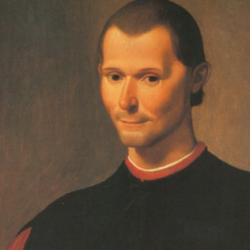We Americans pride ourselves on our religious freedom absolutism. Officially, the U.S. permits all religious expression and prohibits none. In reality, the situation is more complicated, since the scope of “religious expression” has to be negotiated by American courts. Polygamy isn’t protected religious practice, for instance, and a Presidential oath on the Bible does not count as an establishment of religion.
Even in the secularized West, the U.S. church-state settlement is hardly universal. Forty-two countries around the globe have blasphemy laws of one sort or another, including Ireland, Romania, Greece, Finland, Italy, Denmark, Poland and Lithuania. Over thirty democracies place some restrictions on proselytizing by foreign missionaries, including the United Kingdom, Switzerland, Denmark, and Austria. Most countries, including the U.S., have some form of entanglement of religion and political life.
In some parts of the world, though, states have been experimenting with overtly religious forms of toleration. As explained in 2010 by an Indonesia court, the Indonesian Constitution of 1945 “places the ideal of Belief in God as its foremost principle as well as religious values underlying the movements of national and state life.” The world’s largest majority Muslim nation, and an officially Muslim state, Indonesia officially recognizes six religions. As Boston University’s Jeremy Menchik puts it in Islam and Democracy in Indonesia, Indonesia is running an experiment in “toleration without liberalism.”
This theological commitment of course raises constant questions for Indonesia’s department of religious affairs. Should the Islamic group Ahmadiyah, regarded by many Indonesian Muslims as a heresy, be free to practice in Indonesia? (Indonesian authorities answered No.) Do the beliefs of Balinese Hindus qualify as “Belief in God”? (The answer was eventually Yes.) Indonesia restricts foreign missionaries and proselytizing.
Recent events point to the pressures mounting against the Indonesian religious settlement. As reported by the Economist, charges of blasphemy against Basuki Tjahaja Purnama (Ahok) raised the question of whether Indonesia would allow “a Christian to hold the second-most prominent elected office,” the position of governor of Jakarta. Ahok lost the second round of the election, but his opponent “openly wooed the chauvinist vote during the campaign, for instance by joining rabble-rousing clerics for dawn prayers before a vituperative anti-Ahok rally.”
The rousing is the result of decades of infiltration from non-Indonesian Islam. Nahdlatul Ulama, Indonesia’s largest Islamic group, “was founded in 1926 to resist the growing influence of puritanical Arabian preachers.” Yet radical Islam has a foothold: “Gulf Arabs fund lots of mosques. Rabble-rousers are able to turn out big crowds to protest against perceived insults to Islam. The agitators portray traditional Indonesian Islam as rural and backward, implying that educated city-dwellers should follow a purer form of the religion. Politicians . . . seldom resist the urge to cloak themselves in piety.”
The Indonesian settlement is theologically unstable. Does this “One God” confessed by the State have a Son named Jesus? If he doesn’t, then Christians would have to regard him as an idol. Is Mohammed a prophet of this “One God”? If not, Muslims would have a hard time identifying him with Allah. As Menchik argues, the Constitutional commitment to theism was part of an effort to establish “godly nationalism,” and it functions as a civil religious canopy over the particular religions. Specifically theological thought it is, it risks being as contested as a secular Constitution.















